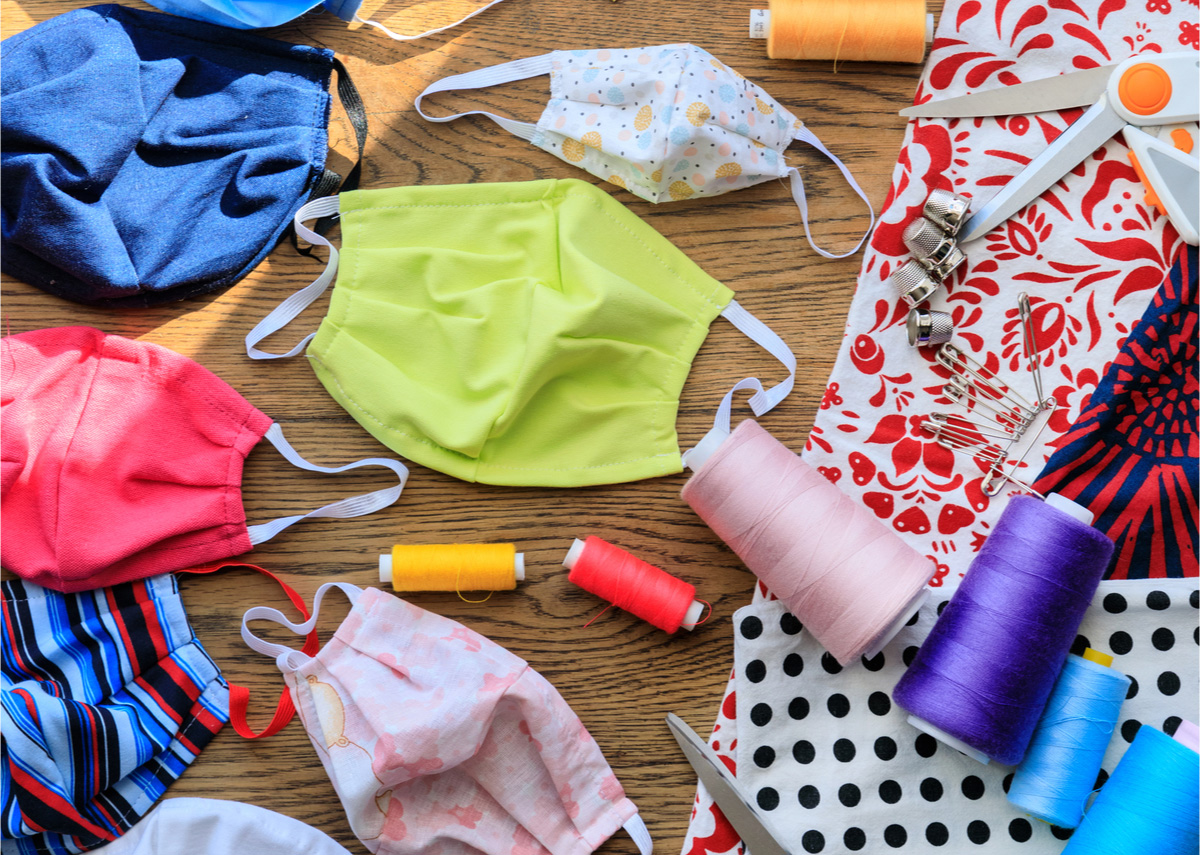WARNING! Study Shows That Homemade Cloth COVID-19 Mask Can Release Tiny Fibers In Air! These Particles Could Become Virus Carriers!
Source: COVID-19 Mask Sep 26, 2020 5 years, 3 months, 3 days, 4 hours, 51 minutes ago
Homemade COVID-19 Mask: Researchers from the University of California at their Davis Laboratory have in study tests of surgical mask, N95 masks and homemade cloth mask found that by only surgical mask and N95 mask cuts down the amount of aerosolized particles emitted during breathing, talking and coughing. However tests of homemade cloth face coverings showed that the fabric itself releases a large amount of fibers into the air, underscoring the importance of washing them. Furthermore some other experts say that these fibers could actually act as carriers of the SARS-CoV-2 coronavirus for individuals who are infected and are wearing these homemade cloth masks.

The study findings are published in the journal: Scientific Reports.
https://www.nature.com/articles/s41598-020-72798-7
With COVID-19 infections continuing to rise exponentially, the use of masks and other face coverings has emerged as an important tool alongside contact tracing and isolation, hand-washing and social distancing to reduce the spread of coronavirus.
The US Centers for Disease Control and Prevention, or CDC, and the World Health Organization endorse the use of face coverings, and masks or face coverings are required by many state and local governments, including the state of California.
However the main goal of wearing face coverings is to prevent individuals who are infected with COVID-19 but asymptomatic from transmitting the virus to others. While evidence shows that face coverings generally reduce the spread of airborne particles, there is limited information on how well they compare with each other.
Dr Sima Asadi, a graduate student working with Professor William Ristenpart in the UC Davis Department of Chemical Engineering, and colleagues at UC Davis and Icahn School of Medicine at Mount Sinai, New York, set up experiments to measure the flow of particles from volunteers wearing masks while they performed "expiratory activities" including breathing, talking, coughing and moving their jaw as if chewing gum.
Dr Asadi and Professor Ristenpart have previously studied how individuals emit small particles, or aerosols, during speech. These particles are small enough to float through the air over a considerable distance, but large enough to carry viruses such as influenza or coronavirus.
The study team has found that a fraction of individuals are "superemitters" who give off many more particles than average.
In the study, 10 volunteers sat in front of a funnel in a laminar flow cabinet. The funnel drew air from in front of their faces into a device that measured the size and number of particles exhaled. They wore either no mask, a medical-grade surgical mask, two types of N95 mask (vented or not), a homemade paper mask or homemade one- or two-layer cloth mask made from a cotton T-shirt according to US CDC directions.
The study only involved tests that measured outward transmission to assess whether the masks could block an infected person from giving off particles that might carry viruses.
It was found that without a mask, talking (reading a passage of text) gave off about 10 times mor
e particles than simple breathing. Forced coughing produced a variable amount of particles. One of the volunteers in the study was a superemitter who consistently produced nearly 100 times as many particles as the others when coughing.
It was observed in all the test scenarios, surgical and N95 masks blocked as much as 90 percent of particles, compared to not wearing a mask. Face coverings also reduced airborne particles from the superemitter.
Alarmingly homemade cotton masks actually produced more particles than not wearing a mask. These appeared to be tiny fibers released from the fabric. Because the cotton masks produced particles themselves, it's difficult to tell if they also blocked exhaled particles. They did seem to at least reduce the number of larger particles.
Other experts reading the study findings warned that these released airborne fibers from homemade mask can act as carriers of the SARS-CoV-2 coronavirus if the person wearing it was infected.
The study results confirm that masks such as surgical mask and N95 mask are effective in reducing the spread of airborne particles.
For more on
Homemade COVID-19 Mask, keep on logging to Thailand Medical News.
